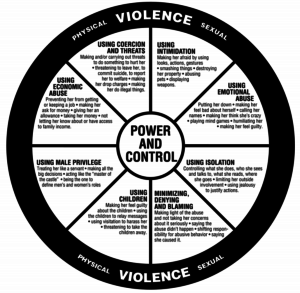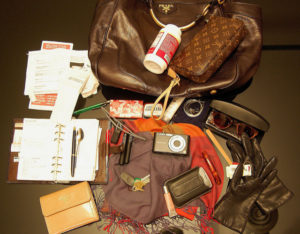Many women and men are suffering in silence from domestic abuse. Fortunately, domestic abuse is a topic that has become more acceptable to discuss. For those that are experiencing the abuse, it can still be painful to discuss because it’s hard to accept and relive the pain. People are afraid to disclose the abuse.
This article will detail the more common types of abuse, in which the man is the abuser and the woman is the victim. It is important to know that women are not always the victim. Statistics show that women are increasingly becoming the abuser in the relationship too. For more support and resources, consider reaching out to Santa Monica Christian Counseling.
Common Questions For Counselors
- My husband doesn’t physically hit me, so is this really abuse?
- My husband constantly threatens me and controls me, but hasn’t physically harmed me. What is this?
- Is it possible to salvage and restore our relationship?
In order to answer these questions, time must be taken to clarify and explain what domestic abuse is and identify the signs of abuse to be looking out for.
What is Domestic Abuse?
Domestic abuse is a way the abuser controls their partner. That control isn’t always physical harm and can also include instilling fear through threats or accusations and controlling your life choices in various ways.

Nobody is immune from domestic abuse. It does not discriminate based on income bracket, age, gender, ethnicity or even religion. Anybody is susceptible to the damage domestic abuse causes.
The first brave step is to acknowledge the abuse is happening to you. There is absolutely no way to benefit from pretending that the abuse does not exist. In fact, abuse normally escalates over time and leads to serious life-threatening actions. Many people think that one day the abuser will change or maybe if the victim behaves in a specific way the abuse will stop, but that is not the answer to the problem of domestic abuse.
Rallying all the courage to address this and stand up for yourself is one of the hardest decisions you will face. Fear can keep you from not moving forward. If you find a safe way to remove yourself from the abuse, it can be the most empowering decisions of your life. Deciding to discuss with a seasoned counselor and work through this is a courageous and necessary step.
Common Signs of Domestic Abuse: The Power and Control Wheel
The National Domestic Violence Hotline uses a “Power and Control Wheel” to describe this kind of abuse. There are eight sections, as shown in the image below. This wheel uses eight different sections to talk about forms of abuse. Familiarize yourself with the wheel pictured below.

Using coercion and threats
The first section describes the use of coercion and threats. As described in the wheel, this can mean that your partner is making threats to hurt you or themselves. This can look like a partner saying, “If you break up with me, I will kill myself.” The threat does necessarily have to be violence-oriented. It could be “If you leave me I will spread this rumor about you to friends.” The abuser is trying to trap you with his threats. If he knows something about you that can possibly get you in trouble, he will capitalize on that.
Not every threat comes off as typical abuse that may come to mind when watching television or hearing about it in everyday life. Some women want the best for everybody and want to help in any possible way. Abusers manipulate and playoff this trait to get what they want.
Using intimidation
Using intimidation is explained as making you afraid of the abuser in order to force you to do something. An abuser might punch holes in doors when angry at you or use his fingers to show him slitting a throat. Intimidation can truly take many forms but boils down to instilling fear in the victim.
Using emotional abuse
 Emotional abuse is frequently overlooked when discussing domestic abuse because it’s not as obvious as physical harm. However, emotional wounds can often impact the victim more deeply than physical wounds. Physical wounds eventually heal, but serious emotional wounds can take years to recover from.
Emotional abuse is frequently overlooked when discussing domestic abuse because it’s not as obvious as physical harm. However, emotional wounds can often impact the victim more deeply than physical wounds. Physical wounds eventually heal, but serious emotional wounds can take years to recover from.
Name calling and verbal attacks all fall under emotional abuse. The abuser mentally breaks you down, until you believe you are worthless and cannot amount to anything or find anybody better.
Many women become conditioned to accept this behavior and even make excuses for their partner. An abuser might tell you are a fat, ugly, or worthless wife. It’s important to realize that nobody deserves to be disrespected or degraded in such a manner. You deserve to be valued, loved and cherished!
Using isolation
An abuser wants to cut their victims off from friends and family. It may start by innocently controlling what you wear but then transforms into controlling your time and who you can interact with. Eventually, your life revolves around the abuser and you have no trusted friends or family to turn to and escape the abuse. That is the ultimate plan so that you cannot be influenced to leave or be told by someone outside your relationship that the abuse is wrong.
Using denial or blame
Many domestic abusers will minimize or deny the abuse. The abuser can also turn the tables and blame the victim for the abuse and make the victim think it’s their fault. This can cause utter confusion for that person. I have heard clients say things like, “Am I going crazy?” This is part of the abuser’s strategy to keep the cycle of abuse going.
Using children
 Even children are leveraged as tools to control the other person. Abusers play on the love of the children to keep the relationship intact. Abusers threaten to take the child away, or worse inflict harm on the child.
Even children are leveraged as tools to control the other person. Abusers play on the love of the children to keep the relationship intact. Abusers threaten to take the child away, or worse inflict harm on the child.
Mothers would do anything to protect their children, so they submit to the demands of the abuser. The thought of losing a child can terrify mothers into compliance and make it more challenging to remove themselves from the toxic relationship.
Using male privilege
Male privilege happens when the abuser seeks power and control because of his gender. He might continually remind you that he is the man of the house and you must do what he says. This is not to be confused with healthy, traditional gender roles where the man is the main provider and woman tends to the family affairs. Although some people think those roles are outdated, it doesn’t necessarily mean it’s an example of male privilege at work.
When a domestic abuser uses male privilege, he is creating a relationship where he dominates everything. The significant other may feel like she’s helpless and incapable of making any decision on her own.
Using economic abuse
Economic abuse is not only overlooked but hard to address in a relationship. When a man commits economic abuse he is seeking to take control of the finances. This creates a barrier for the woman to leave because she is dependent on him to survive. Without his financial support, she wouldn’t have a home, food for herself or access to medical care. Because a tight rein is kept on the finances, it can be extremely hard to escape this relationship without help from others around you.
What Should I Do Now?
This article explained in detail the many facets of abuse. It can be a lot to take in, but hopefully showed you what to look for and, most importantly, the urgency to not remain in that situation. Knowing what to do with this knowledge is going to be an important next step.
 If you believe your life is being threatened, it’s important to find a place of safety immediately. Assess your safety and plan a course of action. This could mean packing up and leaving home while your husband is at work, or calling the police for assistance. Your well being, as well as the well being of your children, is critical.
If you believe your life is being threatened, it’s important to find a place of safety immediately. Assess your safety and plan a course of action. This could mean packing up and leaving home while your husband is at work, or calling the police for assistance. Your well being, as well as the well being of your children, is critical.
Find Help with Counseling for Domestic Abuse
You can find refuge and strength through counseling and support groups. If you are experiencing any of these forms of abuse, reach out to a counselor is a safe next step. You aren’t meant to go through this alone. If you have the guidance of a trusted counselor on this journey with you, your anxiety will decrease and confidence increase.
Ending the cycle of domestic abuse is tricky without additional support along the way. Discussing with a counselor what your strategy should be will help reinforce your choice to leave an unhealthy relationship. Counselors are usually a good source of additional information about such things as lawyers, medical professionals, and other safety measures.
Even if you leave the abuser, the emotional and mental damage has already been inflicted. Most times there are lies that you’ve believed about yourself that need to be replaced with God’s truth. A counselor keeps you on track toward growing through the pain and coming out even stronger than before. The abuser would love to keep you trapped even after you have freed yourself, but counselors will encourage you to look forward and focus on your individual progress.
A Christian counselor will create a safe environment for you to explore a relationship with Jesus and learn to rely on Him as you continue through life. God’s love for you is overflowing. He wants to near to you and involved in every aspect of your life. There is hope for your future and healing for the hurts that have been done to you. A Christian counselor at Santa Monica Christian Counseling can guide you on this journey of healing and spiritual growth.
Please feel free to reach out today. A trusted counselor will link arms with you as you walk toward freedom and healing.
“Fear”, Courtesy of Alexander Krivitskiy, Unsplash.com, CC0 License; “Girl”, Courtesy of Lotte Meijer, Unsplash.com, CC0 License; “Sad Child”, Courtesy of Tadeusz Lakota, Unsplash.com, CC0 License; “What’s in My Bag?” courtesy of Rooey202, Flickr Creative Commons


